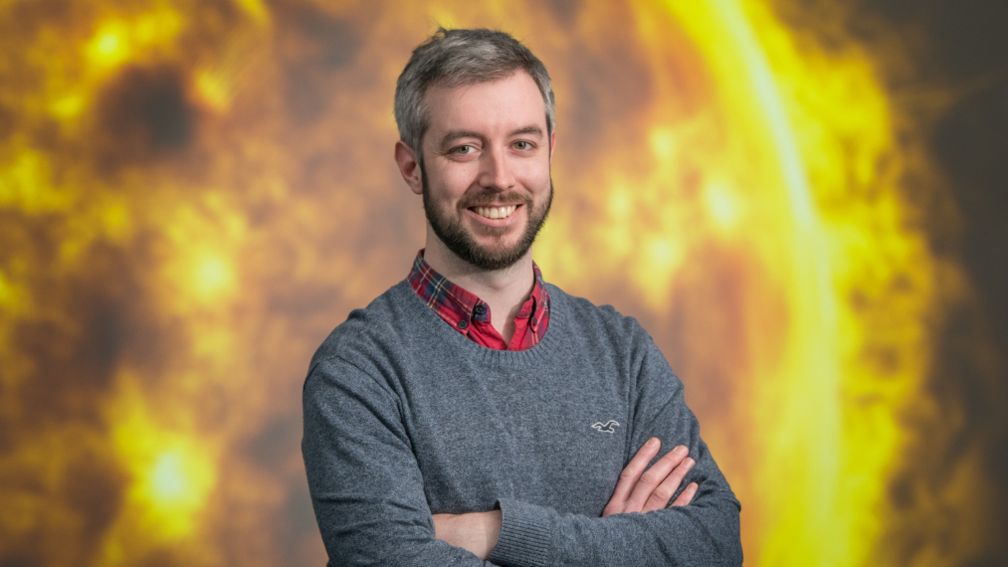Scientist wins award for space weather model

Dr Andy Smith won the Winton Award from the Royal Astronomical Society
- Published
A Northumbria University scientist has won an award for his work on modelling space weather.
Dr Andy Smith received the award from the Royal Astronomical Society earlier this month.
Dr Smith's models are used by the Met Office to inform its space weather forecasts.
Modelling space weather is becoming increasingly important to the modern world, as phenomena such as solar eruptions can have huge impacts on the Earth's powerlines.
Power disruption
Solar eruptions result in plasma being fired towards Earth at supersonic speeds which can disrupt power systems, said Dr Smith.
“Things like pipelines and power networks are particularly vulnerable,” he said.
Dr Smith won the Winton Award which is given each year by the Royal Astronomical Society to a postdoctoral astronomy researcher at a UK institution whose career has shown the most promise.
In 2011, severe space weather was added to the UK’s list of the most serious threats.
Dr Smith’s models use artificial intelligence and statistical models to try and better understand space weather and predict when severe events are likely to occur.
But one of the biggest challenges facing scientists devising these models is that major space weather events are rare.
This makes it difficult to collect the data required to predict future events, said Dr Smith.
One of the largest recent events which affected Earth was in 1989, when a solar flare caused a nine-hour blackout, external for millions of people in the Canadian province of Quebec.
Follow BBC North East on X (formerly Twitter), external, Facebook, external and Instagram, external. Send your story ideas to northeastandcumbria@bbc.co.uk.
Related topics
More stories from BBC North East and Cumbria
- Published22 November 2023
